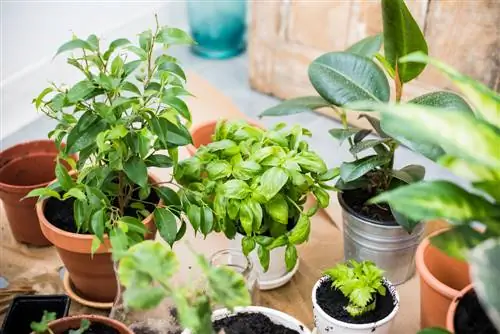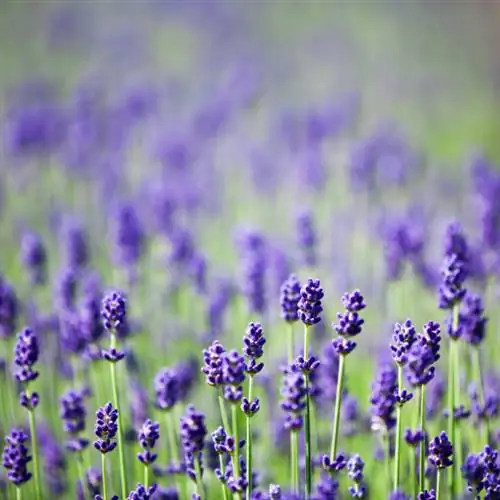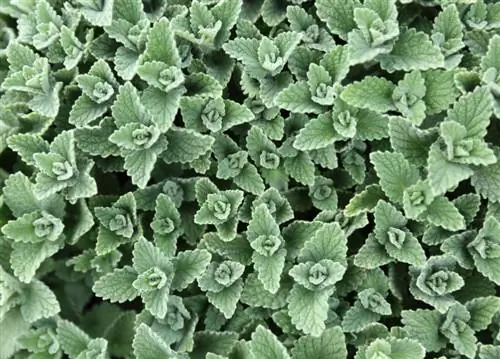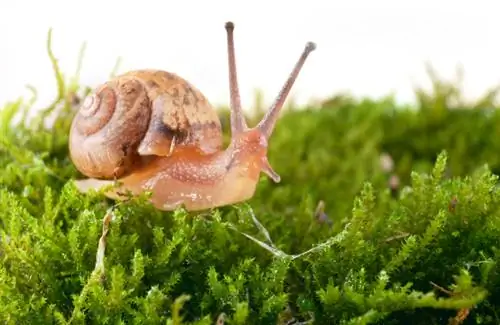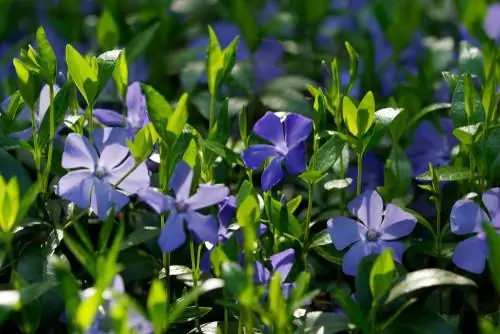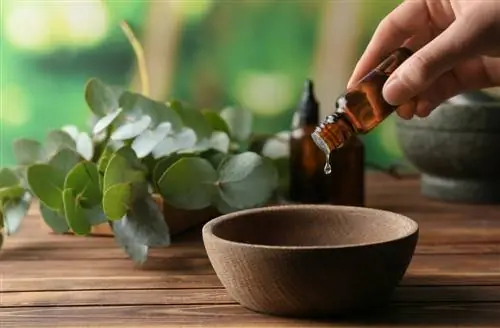- Author admin leonars@hobbygardeners.com.
- Public 2024-01-02 03:03.
- Last modified 2025-01-23 11:22.
Oh, that smells good. Do you also like to smell the fresh scent of lemon or mint? Luckily, whiteflies don't share your taste. That's why some plants that contain a lot of essential oils are very suitable for driving pests away. This article gives you an overview of recommended varieties.
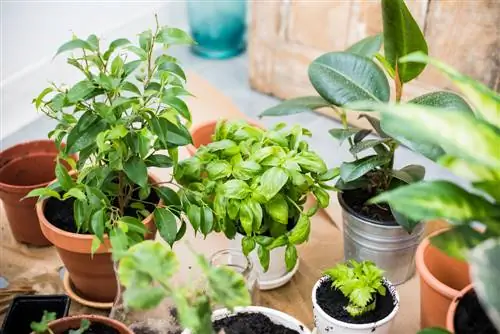
Which plants help against whiteflies?
To keep whiteflies away from plants, plants with essential oils such as basil and thyme, as well as plants that attract natural predators, e.g. B. marigolds and cornflowers can be used. A plant decoction made from basil, nettles and garlic can also help combat the problem.
Plants with essential oils
- Basil
- Thyme
- Celery
- Lettuce
The herbs and vegetables mentioned emit certain scents that the whitefly detests. Lettuce and celery can be easily integrated into the vegetable patch. However, some caution is required with lettuce as it attracts aphids. These pests are also noticeable through honeydew or powdery mildew on the leaves. You can also grow thyme and basil indoors on the windowsill.
Plants that attract predators
- Marigold
- Cornflower
- Wild herbs
- Student flowers
If you want to make sure that the whiteflies don't just move away from the affected plant and move to a neighboring plant at a safe distance, you should attract natural predators into the garden. The parasitic wasp or the hoverfly are ideal for this. They do no harm to your other plants. However, by feeding on the whiteflies, they conscientiously reduce the population. As a gardener, you also make an important contribution to the fight against insect mortality by giving predators a home.
Suitable plants for a plant decoction
- Basil
- Stinging nettles
- garlic
While plants with scents only combat whiteflies in a limited area and predators themselves place demands on the environmental conditions, you are guaranteed to put an end to the pests with a home-made plant decoction. Here too, basil proves to be a true all-rounder and garlic also impressively proves that it has more than just culinary value. You can easily grow nettles in the wild. But be careful, only pick as many leaves as you really need. Otherwise you will destroy the habitat of useful butterflies. How to make the plant decoction:
- Soak the leaves of nettles and basil in water for a few days.
- Cut the garlic bulbs into small pieces and scald them with hot water.
- Pour the broth into a spray bottle.
- Spray on the undersides of the leaves.

